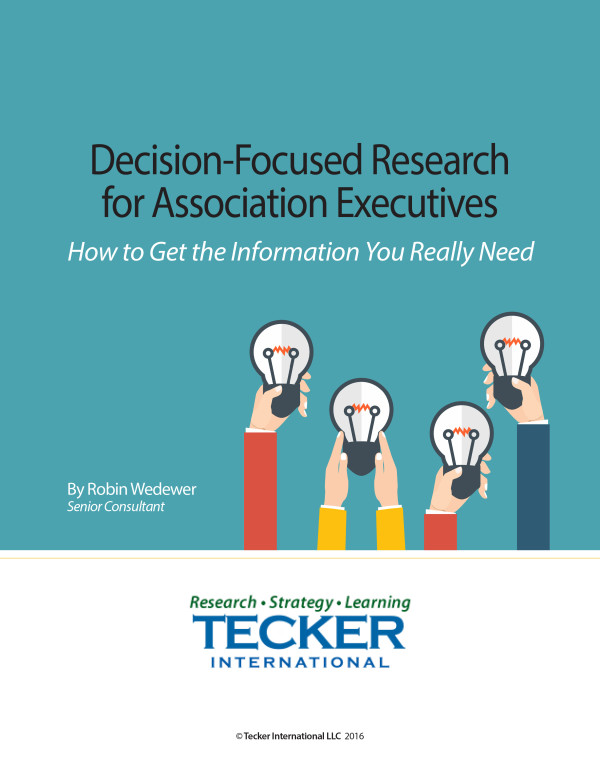Robin and I recently participated in a conversation about research with some association colleagues. The conversation spanned the topics of qualitative and quantitative research; the value of collecting original research versus using existing data sets; effective and ineffective survey design; entrusting research with the staff versus outsourcing and more. In last week’s blog, Robin addressed the cost of doing research. This week, I want to discuss the order of research.
We have observed that the order of methodologies is a key decision in research design.
We’ve often found that, especially in associations, the initial use of qualitative research can uncover things to inquire about in a survey that you wouldn’t otherwise know to ask about. We have also found that qualitative research usually allows better targeting of survey research to the issues about which you want to make decisions.
We agree that focus group research with viewing rooms, rewards for participants, and recording technology can be expensive. However, telephone interviews (not the same as telephone surveys) and guided group discussions (focus groups without the accouterments) are relatively inexpensive and very effective approaches to qualitative research.
We do not reject quantitative surveys as part of a balanced inquiry. In fact, we frequently use open ended questions on the surveys we integrate into all kinds of strategy work: educational, organizational, marketing, brand, governance, fiscal, technology, web, communications, advocacy, etc.
Every research method has its own advantages and disadvantages. We advise executives that knowledgeable research design considers all the options and provides for insightful interpretation is important to whatever methodology is employed.
Read Robin’s e-books on decision-focused research and qualitative research.


